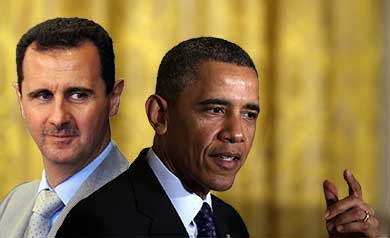by Jim Quinn
“I mean—hell, I been surprised how sane you guys all are. As near as I can tell you’re not any crazier than the average asshole on the street.” – R.P. McMurphy – One Flew Over the Cuckoo’s Nest
“Years ago, it meant something to be crazy. Now everyone’s crazy.” – Charles Manson
“In America, the criminally insane rule and the rest of us, or the vast majority of the rest of us, either do not care, do not know, or are distracted and properly brainwashed into acquiescence.”– Kurt Nimmo
I have to admit to
being baffled by the aptitude of the Wall Street and K Street financial elite
to keep their Ponzi scheme growing. I consider myself to be a rational, sane
human being who understands math and bases his assessments upon facts and a
sensible appraisal of the relevant information obtained from trustworthy
sources. Of course, finding trustworthy sources is difficult when you live in a
corrupt, crony-capitalist, fascist state, controlled by banking, corporate and
military interests who retain absolute control over the mainstream media and
governmental propaganda agencies. Those seeking truth must pursue it through
the alternative media and seeking out unbiased critical thinkers who
relentlessly abide by what the facts expose. This is no time for wishful
thinking, delusions and fantasies. In the end, the facts are all that matter.
As Heinlein noted decades ago, the future is uncertain so facts are essential
in navigating a course that doesn’t lead you to ruin upon the shoals of
ignorance.
“What are the facts? Again and again and again – what are the facts? Shun wishful thinking, ignore divine revelation, forget what “the stars foretell,” avoid opinion, care not what the neighbors think, never mind the un-guessable “verdict of history” – what are the facts, and to how many decimal places? You pilot always into an unknown future; facts are your single clue. Get the facts!” ? - Robert A. Heinlein
Facts are
treasonous and dangerous in an empire of lies, fraud and propaganda. It is
maddening to watch the country spiral downward, driven to ruin by a psychotic
predator class, while the plebs choose to remain willfully ignorant of reality
and distracted by their lust for cheap Chinese crap and addicted to the cult of
techno-narcissism. We are a country running on heaping doses of cognitive
dissonance and normalcy bias, an irrational belief in our national
exceptionalism, an absurd trust in the same banking class that destroyed the
finances of the country, and a delusionary belief that with just another
trillion dollars of debt we’ll be back on the exponential growth track. The
American empire has been built on a foundation of cheap easily accessible oil,
cheap easily accessible credit, the most powerful military machine in human
history, and the purposeful transformation of citizens into consumers through
the use of relentless media propaganda and a persistent decades long dumbing
down of the masses through the government education system.
This national
insanity is not a new phenomenon. Friedrich Nietzsche observed the
same spectacle in the 19th century.
“In individuals, insanity is rare; but in groups, parties, nations and epochs, it is the rule.”
The “solutions”
imposed by the supposed brightest financial Ivy League educated minds and
corrupt bought off political class upon people of the United States since the
Wall Street created 2008 worldwide financial collapse are insane and designed
to only further enrich the crony capitalists and their banker brethren. The
maniacs are ruling the asylum. John Lennon saw the writing on the wall forty
five years ago.
“Our society is run by insane people for insane objectives…. I think we’re being run by maniacs for maniacal ends … and I think I’m liable to be put away as insane for expressing that. That’s what’s insane about it.” – John Lennon, Interview BBC-TV (June 22, 1968)
The world is most
certainly ruled by a small group of extremely wealthy evil men who desire ever
more treasure, supremacy and control, but the vast majority of Americans have
stood idly by mesmerized by their iGadgets and believing buying shit they don’t
need with money they don’t have is the path to happiness and prosperity, while
their wealth, liberty and self-respect were stolen by the financial elite. Our
idiot culture, that celebrates reality TV morons, low IQ millionaires playing
children’s sports, ego-maniacal Hollywood hacks, self-promoting Wall Street
financiers, and self-serving corrupt ideologue politicians, has been
degenerating for decades.
“We are in the process of creating what deserves to be called the idiot culture. Not an idiot sub-culture, which every society has bubbling beneath the surface and which can provide harmless fun; but the culture itself. For the first time, the weird and the stupid and the coarse are becoming our cultural norm, even our cultural ideal.” - Carl Bernstein -1992
The examples of
our national insanity are almost too vast to document, but any critical
assessment of what we've done over the last one hundred years reveals the
idiocy that has engulfed our collapsing empire.



.jpg)








.jpg)



